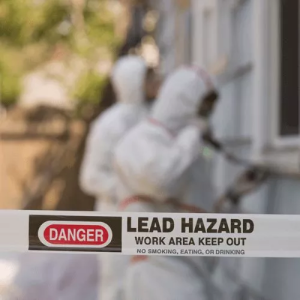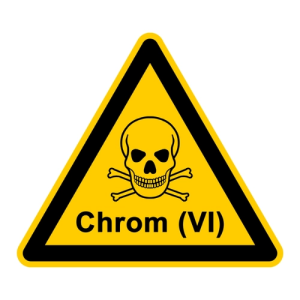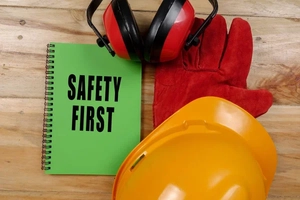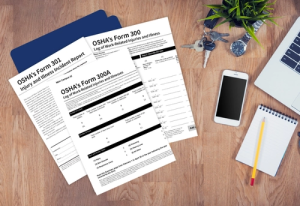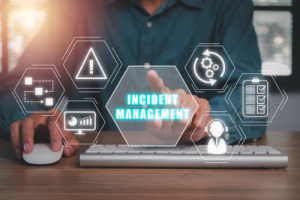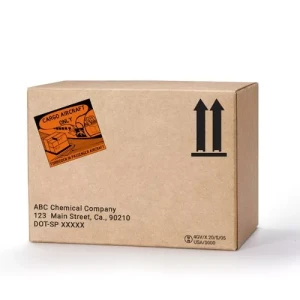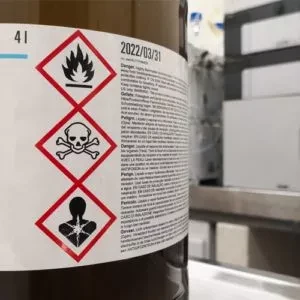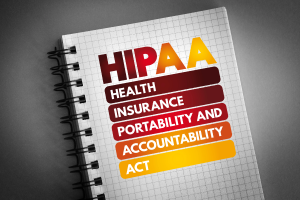What is HIPAA Compliance? A Complete Guide to Workplace Safety and Regulatory Requirements

Introduction
Workplace injuries and illnesses rose by 11% in 2023 compared to the previous years, with 375,111 reported cases alone by the healthcare sector, which is 28% of all incidents across all industries. This notable rise shows the need for a stringent regulatory framework like HIPAA that protects sensitive patient data and keeps workplaces safer, especially in healthcare and related fields. HIPAA compliance was established in 1996 under the Health Insurance and Accountability Act. It sets strict standards for protecting Protected Health Information (PHI) so that it stays confidential and secure. HIPAA applies to the covered entities, such as insurers and healthcare providers, as well as their business associates, such as IT vendors and billing companies that deal with PHI. Beyond legal compliance, HIPAA also helps in risk mitigation, developing patient trust and addressing major challenges of data breaches in complex healthcare environments. Therefore, in this detailed guide, we will explore how HIPAA compliance is a cornerstone for workplace safety and regulatory adherence.
Major HIPAA Rules and Compliance Requirements
HIPAA compliance is essential to maintaining the confidentiality and integrity of the patient's data. It ensures that healthcare providers and associates strictly follow the Protected Health Information (PHI) handling guidelines. At its core, HIPAA compliance is defined by several rules outlining how PHI must be managed and protected.
Privacy Rule: Protecting Patient Information
The HIPAA Privacy Rule is a federal standard that protects individually identifiable health information, across all formats, such as paper, electronic, and oral. It applies to insurers, healthcare providers, and their business associates. It restricts the use of PHI and its disclosure, requiring patient authorization for certain purposes such as marketing. It grants patients the right access their medical records, be restricted from disclosure, and plead for corrections. Covered entities must provide the Notice of Privacy Practices, informing patients how their PHI may be used and disclosed.
Security Rule: Safeguards for Electronic PHI (ePHI)
The HIPAA Security Rule specifically addresses the protection of electronic protected health information (ePHI). It outlines administrative, technical, and physical safeguards to ensure the confidentiality, availability, and integrity of ePHI. All these safeguards are integral in preventing data breaches and unauthorized disclosures as they secure the system and network that stores the ePHI1. The covered entities must implement these measures to keep patient data safe against cyber threats and maintain patient's trust.
Breach Notification Rule: Reporting Requirements
The Breach Notification Rule requires the related entities to inform the affected individuals and sometimes the media about the breach of an unsecured PHI occurring. It mandates entities to notify the U.S. Department of Health and Human Services (HHS). This helps in mitigating harm to the individuals affected by PHI breaches.
Enforcement Rule: Penalties for Non-Compliance
The Enforcement Rule outlines both civil and criminal penalties for violating HIPAA regulations. These rules are enforced by the Office of Civil Rights (OCR), along with imposing fines that will be substantial for non-compliance. This enforcement mechanism encourages compliance to avert financial and reputational damages. Compliance with these core HIPAA rules helps protect patient privacy, maintain trust, and meet legal requirements. By implementing the required safeguards and staying updated with the evolving rules, healthcare providers can foster a secure environment to deal with sensitive health-related information.
Steps to Achieve and Maintain HIPAA Compliance
Achieving and maintaining HIPAA compliance requires a structured approach compliant with the Protected Health Information (PHI) and adhering to regulatory standards. Below are the key steps on how the organizations can maintain and achieve HIPAA compliance:
1. Perform Risk Assessments
The first step is to perform an in-depth security risk assessment. It includes identifying vulnerabilities and threats to the integrity, confidentiality, and availability of electronic Protected Health Information (ePHI) implement measures to mitigate them as part of a robust risk management plan.
2. Apply Security and Administrative Safeguards
Applying security and administrative safeguards is essential for PHI and ePHI protection. It includes establishing administrative, technical, and physical measures as required by the HIPAA Security Rule. Technical safeguards such as encryption and access controls help protect ePHI from unauthorized access. These safeguarding measures ensure that the PHI is managed securely across all formats.
3. Training Employees and Policies Enforcement
To keep up with the privacy and security of the workplace, employees should be trained in HIPAA compliance. All staff handling PHI must receive comprehensive training on privacy policies, secure data handling, and applicable security measures. HIPAA Compliance training helps avert security breaches. Routine audits help enforce Policies and compliance monitoring helps to adhere with HIPAA standards.
4. Securing Vendor Compliance with HIPAA
Vendor compliance is ensured by managing third-party risks. It involves obtaining Business Associate Agreements (BAAs) from vendors handling PHI. The BAA outlines each business associate’s responsibilities under HIPAA, ensuring they adhere to the same standards as covered entities. Vendor compliance should be regularly evaluated to mitigate the risks related to the outsourcing PHI services.
Common Queries About HIPAA Compliance
All healthcare organizations and their business associates should understand HIPAA compliance thoroughly. Below are some frequently t asked questions on the topic:
What are the Penalties for Non-Compliance with HIPAA?
Non-compliance with HIPAA can cause severe penalties ranging from civil fines to criminal penalties. These penalties are enforced by the Office for Civil Rights (OCR), which can be huge amounts, particularly in cases of willful neglect or repeated violations. The civil penalties can be around $50,000 per violation, with the highest penalty around $1.5 million for identical violations. Criminal penalties are, however, less common but can include fines and even imprisonment in the case of egregious violations.
What's the Impact of HIPAA on Workplace Safety?
HIPAA is primarily focused on preserving patient's health information. However, it still significantly impacts workplace safety. Ensuring healthcare environments are secure and organized, HIPAA compliance can lessen accidents and incident risks that can compromise patient data. For example, securely stored physical and digital patient data records not only ensures HIPAA compliance but also contributes to a safer workplace. Integrating HIPAA with OSHA training boosts workplace privacy and safety culture, ensuring the staff is conscious of patient information protection and workplace hazards.
How Often to Conduct HIPAA Training?
Regularly conduct HIPAA training so that employees retain the latest regulations and best practices related to Protected Health Information (PHI). HIPAA has not mandated any specific frequency, but it is recommended that the training be conducted annually or with updates in the policies, personnel, and procedures. New hires should receive training during onboarding and periodic refreshers to stay compliant and prevent breaches.
Do We Have State-Specific HIPAA Laws?
Although HIPAA is a federal law, some states have additional laws for protection of patient health information. These state laws can be more rigid than HIPAA, so healthcare organizations must comply with state and federal regulations. For example, California's Confidentiality of Medical Information Act offers additional privacy with HIPAA.
What Role Does HIPAA Compliance Officer Play?
HIPAA Compliance Officer oversees and implements the organization's HIPAA compliance program. The officer is responsible for performing risk assessments, crafting policies and procedures, training employees, and keeping track of HIPAA regulations. The compliance officer also deals with breach notifications and closely works with the regulatory bodies during audits or investigations. The role of HIPAA compliance officer is to ensure compliance with HIPAA standards and mitigating risks related to PHI handling.

Final Thoughts
More than a regulatory requirement, HIPAA compliance is a critical safeguard against data breaches, operational risks, and legal consequences. Covered entities and business associates must protect patient data by imposing security measures, performing regular risk assessments, and ensuring that the employees are sticking to HIPAA regulations. With rising cyber threats globally, organizations need stricter enforcement, and non-compliant people risk severe financial penalties and reputational damages. One of the easiest ways to comply with HIPAA is with the help of comprehensive employee training such as HIPAA General Awareness Training. It will ensure that your team members understand HIPAA rules, its security protocols, and fines for non-compliance. Businesses that want to reinforce their compliance efforts can also get structured HIPAA training programs to help them understand the complex regulations and develop a safer workplace culture.
References:
The HIPAA Journal, OSHA Publishes Workplace Injury and Illness Data for Calendar Year 2023, 13th Dec 2024, https://www.hipaajournal.com/osha-workplace-injury-illness-data-2023/
Centers for Medicare & Medicaid Services, HIPAA Basics for Providers: Privacy, Security, & Breach Notification Rules, Feb 2023, https://www.cms.gov/outreach-and-education/medicare-learning-network-mln/mlnproducts/downloads/hipaaprivacyandsecurity.pdf

 EN |
EN |  ES
ES























